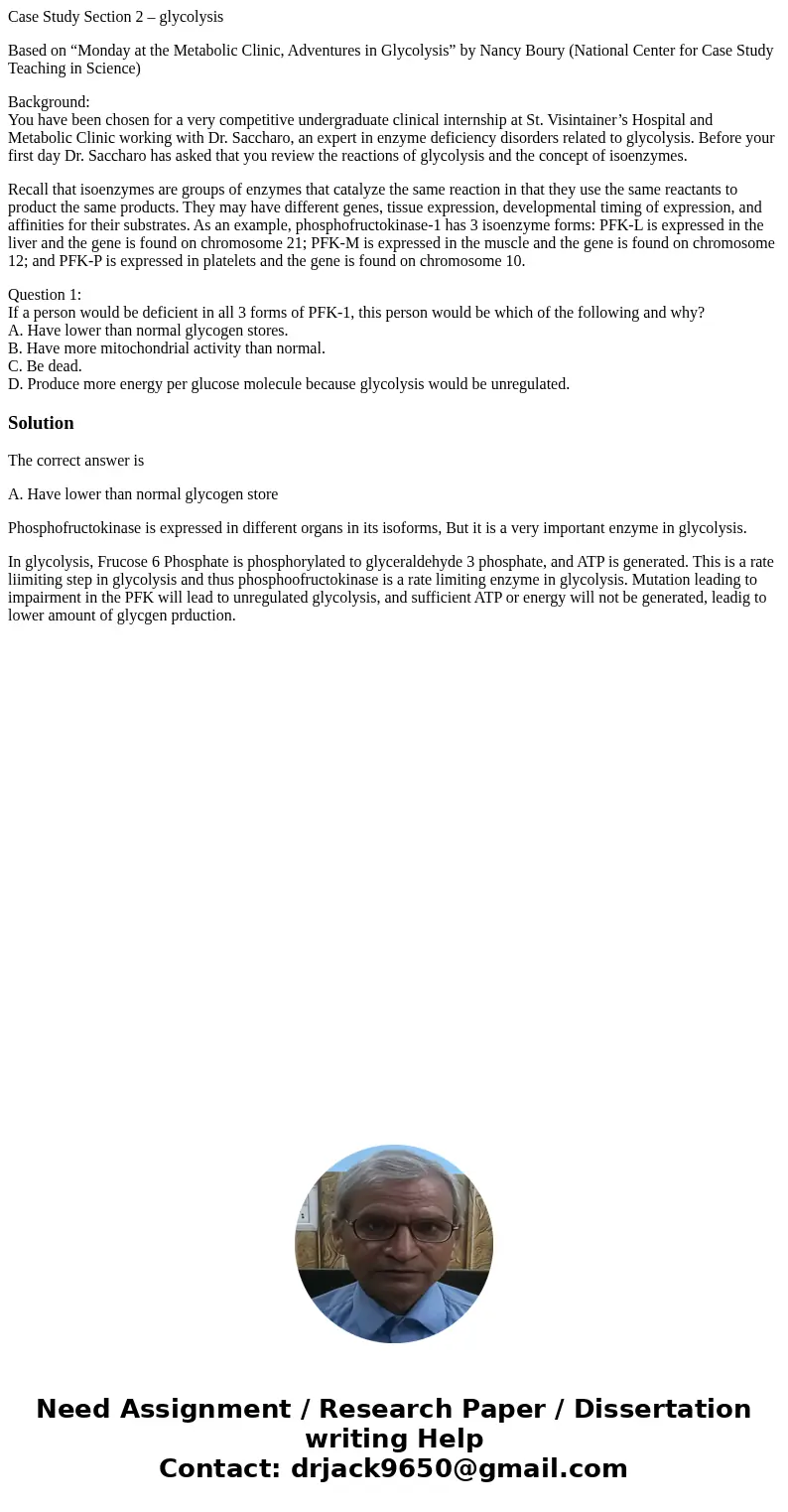Case Study Section 2 glycolysis Based on Monday at the Meta
Case Study Section 2 – glycolysis
Based on “Monday at the Metabolic Clinic, Adventures in Glycolysis” by Nancy Boury (National Center for Case Study Teaching in Science)
Background:
You have been chosen for a very competitive undergraduate clinical internship at St. Visintainer’s Hospital and Metabolic Clinic working with Dr. Saccharo, an expert in enzyme deficiency disorders related to glycolysis. Before your first day Dr. Saccharo has asked that you review the reactions of glycolysis and the concept of isoenzymes.
Recall that isoenzymes are groups of enzymes that catalyze the same reaction in that they use the same reactants to product the same products. They may have different genes, tissue expression, developmental timing of expression, and affinities for their substrates. As an example, phosphofructokinase-1 has 3 isoenzyme forms: PFK-L is expressed in the liver and the gene is found on chromosome 21; PFK-M is expressed in the muscle and the gene is found on chromosome 12; and PFK-P is expressed in platelets and the gene is found on chromosome 10.
Question 1:
If a person would be deficient in all 3 forms of PFK-1, this person would be which of the following and why?
A. Have lower than normal glycogen stores.
B. Have more mitochondrial activity than normal.
C. Be dead.
D. Produce more energy per glucose molecule because glycolysis would be unregulated.
Solution
The correct answer is
A. Have lower than normal glycogen store
Phosphofructokinase is expressed in different organs in its isoforms, But it is a very important enzyme in glycolysis.
In glycolysis, Frucose 6 Phosphate is phosphorylated to glyceraldehyde 3 phosphate, and ATP is generated. This is a rate liimiting step in glycolysis and thus phosphoofructokinase is a rate limiting enzyme in glycolysis. Mutation leading to impairment in the PFK will lead to unregulated glycolysis, and sufficient ATP or energy will not be generated, leadig to lower amount of glycgen prduction.

 Homework Sourse
Homework Sourse